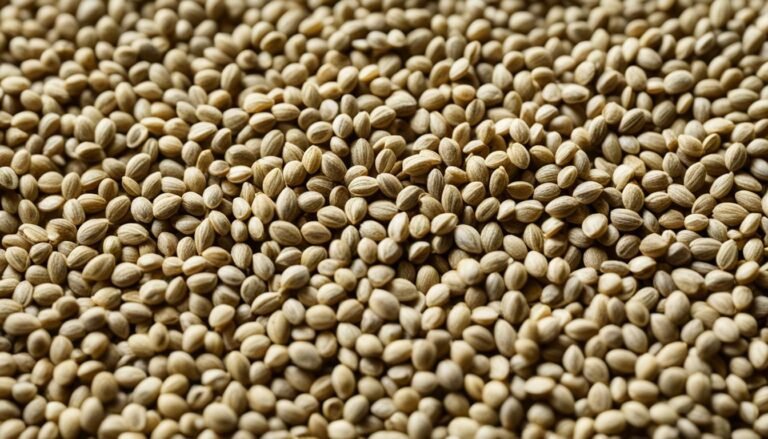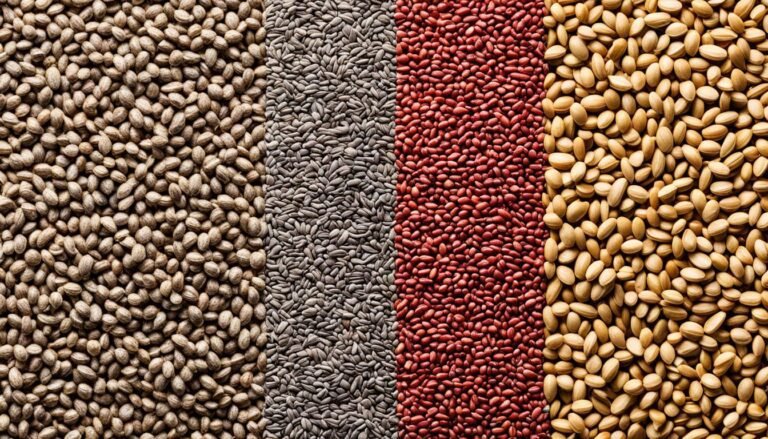Fenugreek Breast Milk Supply: Boost Lactation

A groundbreaking study found that fenugreek breast milk supply increase by 49-103%. This ancient herb is a galactagogue, helping nursing moms increase their milk supply. If you’re facing low milk production, fenugreek could be the answer.
Fenugreek has phytoestrogens that act like estrogen and boost prolactin, the key milk-making hormone. Adding fenugreek to your diet might help keep your breast milk supply strong. It can help even when you’re stressed, tired, or facing other challenges that affect milk production.
What is Fenugreek?
Fenugreek (Trigonella foenum-graecum) is a herb that grows 2-3 feet tall. It has small white flowers and leaves that split into three smaller parts. The fenugreek seeds are golden-colored and used to boost milk supply. They also add a unique taste to foods like artificial maple syrup and curries.
Fenugreek has been used for centuries for its health benefits. Breastfeeding moms often use it to increase their milk production.
Understanding the Herb and Its Properties
The fenugreek herb is packed with compounds like diosgenin, trigonelline, and 4-hydroxyisoleucine. These help with digestion, reduce inflammation, and boost milk production in breastfeeding moms.
- Fenugreek is full of fiber, protein, and vitamins and minerals.
- It’s been used in traditional medicine for many conditions, including diabetes and breathing problems.
- The fenugreek seed is mainly used for its health benefits.
Fenugreek is great for cooking and health. It has many benefits that make it worth trying.
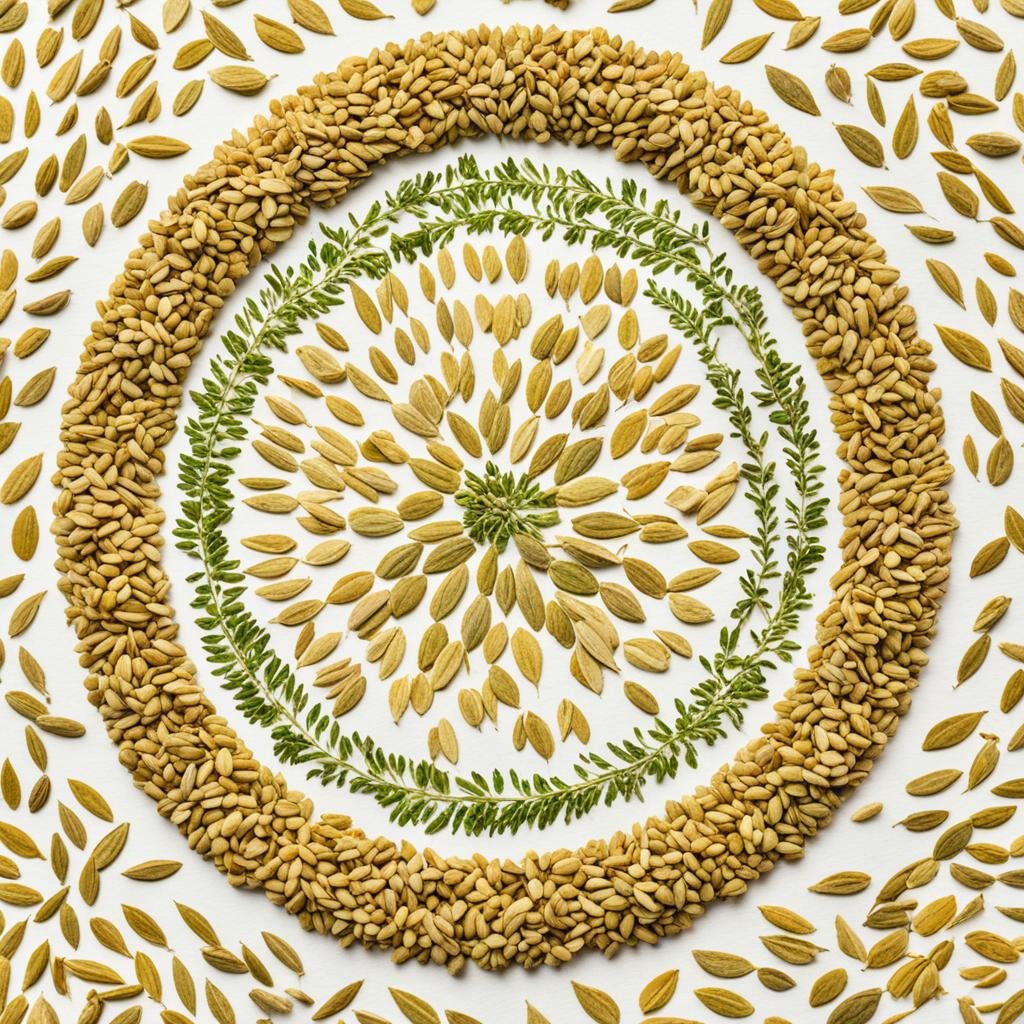
Does Fenugreek Breast Milk Production increase?
Fenugreek is often used to help with breastfeeding. Studies show it can help boost milk supply. But, the results are not the same for everyone.
A 2018 review looked at 122 breastfeeding moms. It found fenugreek helped increase milk production. Another study in 2018 showed a 49% increase in milk at 2 weeks and a 103% increase at 4 weeks for moms taking a fenugreek supplement.
The exact way fenugreek works is still being studied. But, it might affect hormones that help with breastfeeding. This is because of its phytoestrogen content.
| Fenugreek Nutritional Profile (per 1 tablespoon) | Amount |
|---|---|
| Calories | 36 |
| Protein | 2.55 g |
| Fat | 0.71 g |
| Carbohydrates | 6.48 g |
| Fiber | 2.7 g |
| Iron | 3.72 mg (41% of RDA*) |
| Magnesium | 21 mg (7% of RDA*) |
| Potassium | 85 mg (2% of RDA*) |
| Calcium | 20 mg (2% of RDA*) |
Not everyone reacts the same way to fenugreek. You might need to try different herbs to see what works best for you. Always talk to a healthcare provider before using fenugreek, especially if you have health issues or take other medicines.

fenugreek breast milk supply
The research on fenugreek and milk supply is promising but not all studies agree. Some say it helps a lot, while others don’t see much difference. A 2018 review looked at 122 breastfeeding moms and found fenugreek helped increase their milk. Another study in 2018 compared 25 moms on a fenugreek, ginger, and turmeric supplement with 25 on a placebo. The supplement group saw a 49% increase in milk at 2 weeks and a 103% increase at 4 weeks.
But, the supplement had more than one herb, so it’s hard to say how much fenugreek helped. We need more good studies to know for sure how well fenugreek works as a galactagogue.
Fenugreek Milk Supply Research
Here are some important findings on fenugreek and breast milk supply:
- A study in the Journal of Pediatric Sciences found that drinking fenugreek tea helped increase milk supply early on after giving birth.
- Another study showed that babies gained their birth weight faster if their moms drank fenugreek tea.
- A double-blind study in 2011 showed that mothers taking fenugreek had more breast milk and their babies gained weight faster than those on a placebo.
- Many moms say taking fenugreek increases their milk production, usually within 24 to 72 hours.
But, some moms say fenugreek can make milk supply go down or have no effect. This might be because it has estrogen-like effects. We need more research to understand how fenugreek breastfeeding science affects lactation studies fenugreek.
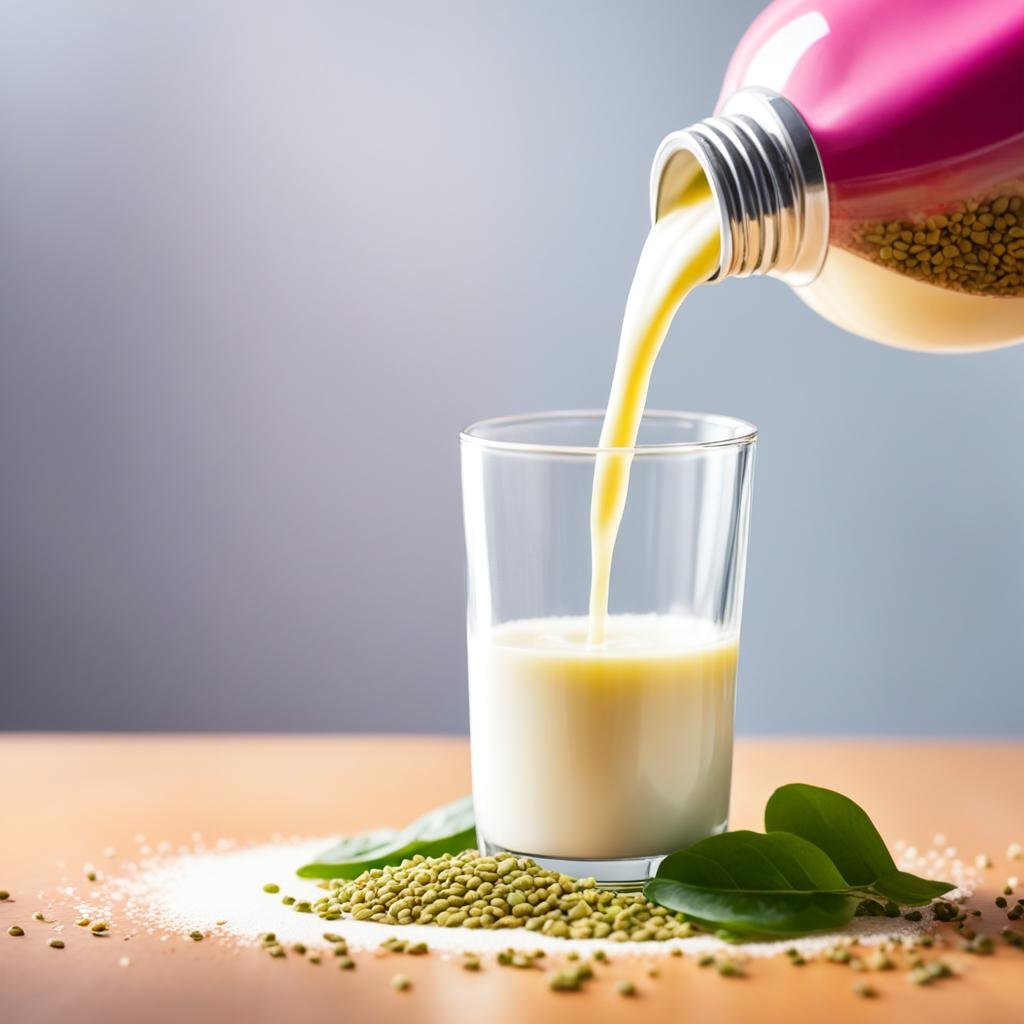
How to Take Fenugreek for Lactation
If you want to increase your milk supply, fenugreek is a great choice. You can take it as tea, supplements, or add it to your food. Let’s look at how you can use fenugreek to help with breastfeeding.
Fenugreek Dosage and Forms
For fenugreek supplements, take 2-3 capsules (580-610 mg each) 3-4 times a day. You can find these supplements in health food stores or online. Or, make a tea by steeping 1 teaspoon of whole fenugreek seeds in boiling water for 15 minutes. Drink this tea 2-3 times a day for best results.
It may take 24-72 hours to see the effects of fenugreek. Some women might need to take it for up to 2 weeks to see more milk. Always talk to your healthcare provider before starting any new supplements, especially if you have health conditions or are on medication.
| Fenugreek Form | Dosage | Frequency | Time to Results |
|---|---|---|---|
| Supplements | 2-3 capsules (580-610 mg each) | 3-4 times per day | 24-72 hours |
| Tea | 1 tsp whole fenugreek seeds | 2-3 times per day | 24-72 hours |
Always follow the recommended dosage and talk to a healthcare professional before using fenugreek for breastfeeding. This ensures you’re using it safely and effectively.
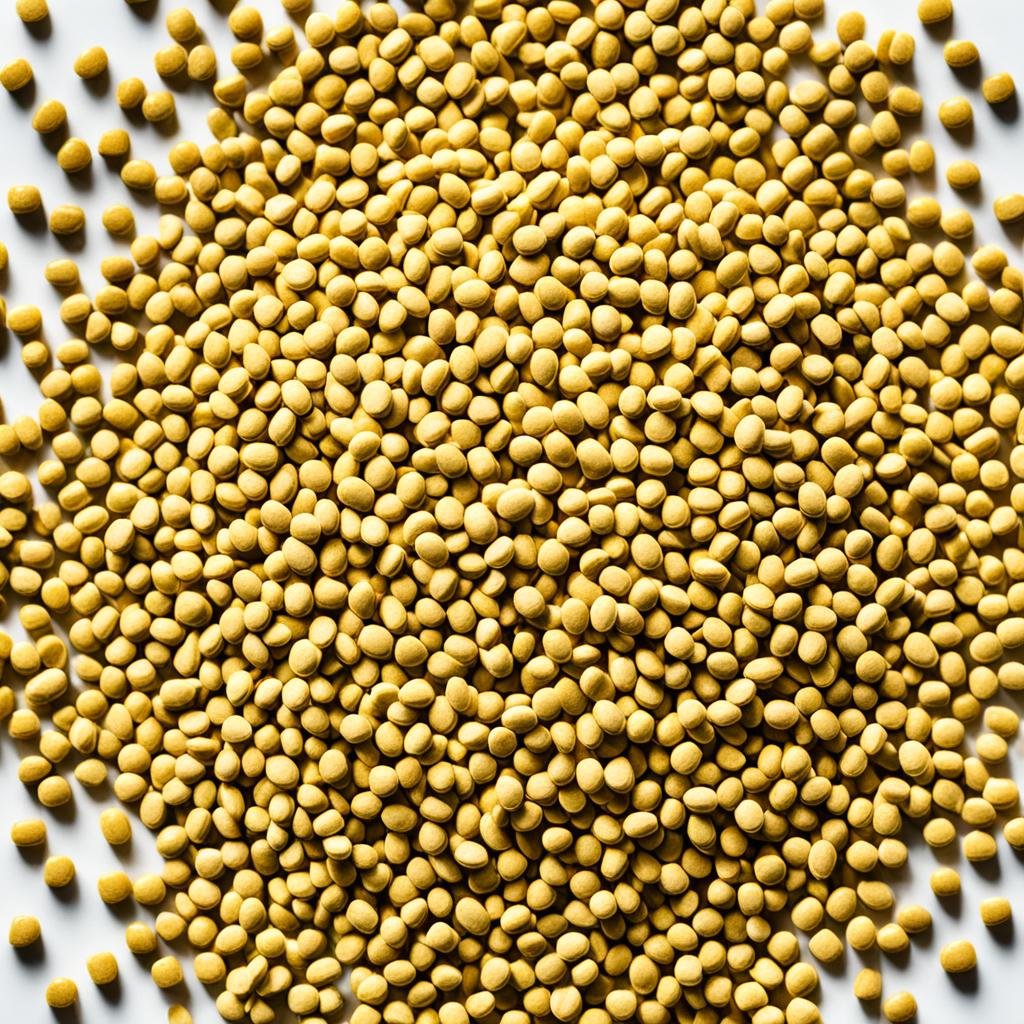
Potential Side Effects of Fenugreek
Fenugreek is usually safe for breastfeeding women, but it can have side effects. Potential side effects include nausea, vomiting, gas, diarrhea, and urine that smells like maple syrup. It might also affect certain medications, like blood thinners and diabetes drugs. Always talk to a healthcare provider before using it.
Avoid fenugreek during pregnancy as it can cause uterine contractions. Most breastfeeding moms find fenugreek okay, but it’s key to stick to the recommended dose. Watch for any bad reactions.
A 2018 study found that mothers taking fenugreek, ginger, and turmeric had more milk at weeks 2 and 4. Yet, a 2019 study showed no harm to babies from mothers drinking Mother’s Milk tea with fenugreek and other herbs.
In the U.S., 85 nursing mothers used fenugreek to help with milk supply, but 45% had adverse reactions. In Australia, 17% of mothers taking fenugreek had bad reactions, including weight gain and stomach issues.
Fenugreek can help some breastfeeding moms increase their milk supply. But, it’s important to know the fenugreek side effects, dangers, and risks for nursing. Always talk to a healthcare provider before adding fenugreek to your breastfeeding routine.

Safety Considerations for Breastfeeding Moms
As a breastfeeding mom, it’s key to think about safety when looking at supplements like fenugreek to help your milk supply. Fenugreek is usually safe for breastfeeding moms, but there are some things to remember.
Interactions and Precautions
Fenugreek might affect some medicines, like blood thinners and diabetes drugs. Always talk to your doctor before taking fenugreek or any supplement if you’re on medication. Also, don’t use fenugreek if you’re pregnant because it could make contractions worse.
Fenugreek is mostly safe, but it might cause nausea, vomiting, diarrhea, and gas. Moms who breastfeed should only take the recommended amount and watch for any bad reactions. Be aware that fenugreek can make sweat smell like maple syrup, both for you and your baby.
Always talk to a healthcare professional about your health and your baby’s health. This is especially true if you have health issues or questions about is fenugreek safe while breastfeeding, fenugreek interactions, or fenugreek precautions nursing.
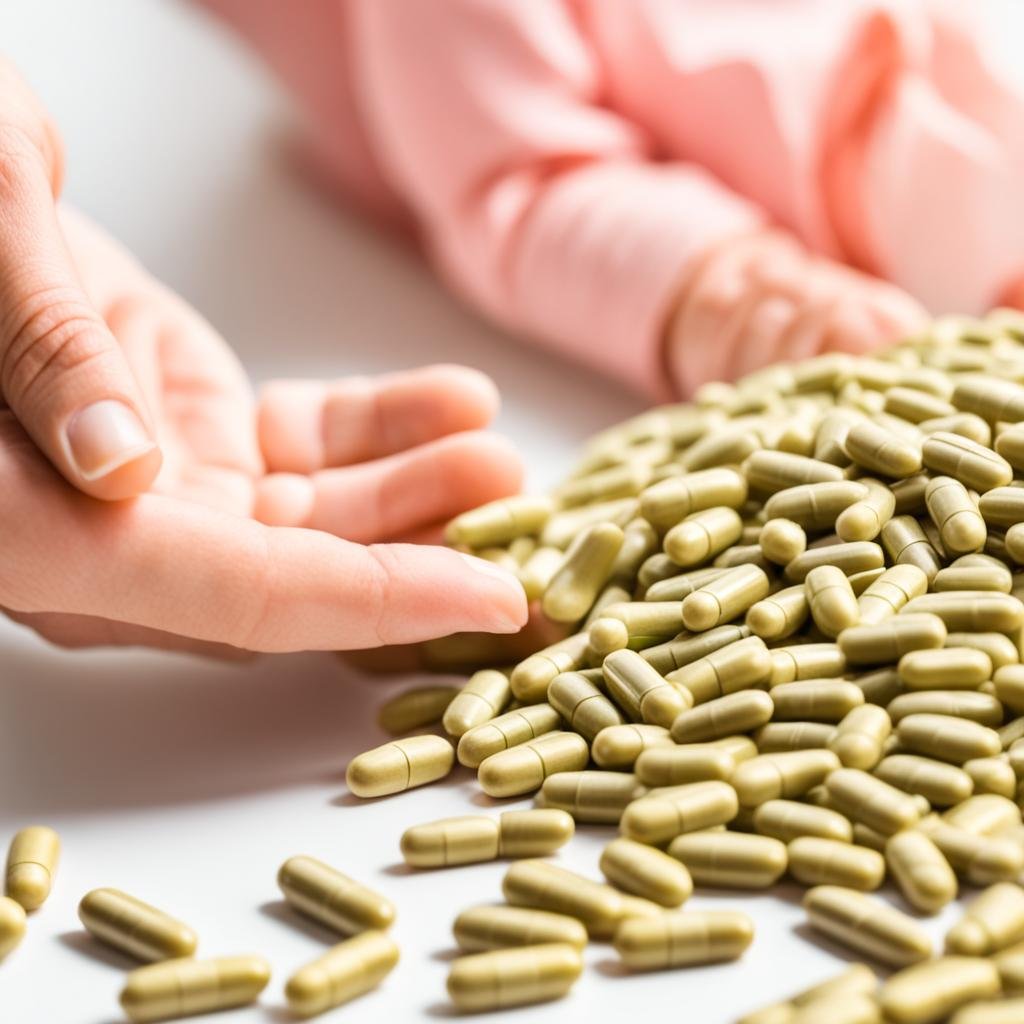
Other Natural Galactagogues
Fenugreek is a top herb for boosting milk supply, but it’s not the only option. Other natural choices might help increase milk production too. These include:
- Palm dates
- Coleus amboinicus Lour (a plant with an oregano-like flavor)
- Fennel seeds
- Blessed thistle
Making changes to breastfeeding can also help increase milk supply. This includes feeding more often, pumping between feedings, and ensuring a good latch. These natural breastmilk boosters and herbs that increase milk supply can be great for your lactation routine. They’re a good choice if you want to avoid lactation supplements.
| Natural Galactagogue | Potential Benefits | Research Findings |
|---|---|---|
| Palm Dates | May increase milk production and improve breast milk composition | A study found that consuming palm dates during the postpartum period led to a significant increase in breastmilk volume compared to the control group (Al-Alawi et al., 2020). |
| Coleus amboinicus Lour | May have lactogenic properties and stimulate milk production | Research suggests that this herb exhibits galactagogue potential and may be effective in enhancing breastmilk supply (Damanik et al., 2006). |
| Fennel Seeds | May increase milk volume and improve milk composition | A study found that fennel tea consumption significantly increased breastmilk production in lactating women (Bani et al., 2013). |
| Blessed Thistle | May help stimulate milk production and support lactation | While research on blessed thistle’s efficacy as a galactagogue is limited, some studies suggest it may have a positive effect on breastmilk supply (Swafford & Berens, 2000). |
Using these natural breastmilk boosters and herbs that increase milk supply can help support your lactation supplements. Along with changes to your breastfeeding, it’s a great way to boost your milk production.
Breastfeeding Tips for Increasing Milk Supply
Techniques to Boost Lactation
There are several breastfeeding techniques to help increase your milk supply. Frequent feeding, aiming for 8-12 times a day, is key. Proper latch and positioning during feedings also help.
Pumping between feedings can stimulate more milk production. Avoiding pacifiers or bottles helps too. It’s important to stay hydrated and eat well to support milk-making. Getting enough rest and managing stress is also key.
By trying these strategies, nursing moms can boost their milk supply. Remember, every breastfeeding journey is different. Be patient, listen to your body, and seek support when needed.
FAQ
What is fenugreek and how can it help boost breast milk supply?
Fenugreek is a type of seed used in many Asian and Middle Eastern dishes. It can help breastfeeding moms make more milk. The seeds have phytoestrogens that might help with the hormones that make milk.
How effective is fenugreek for increasing breast milk supply?
Studies on fenugreek for milk supply show mixed results. But, most studies suggest it can help. Some moms saw their milk go up by 49-103% when taking it as a supplement.
What are the best ways to take fenugreek for increasing breast milk?
You can take fenugreek in different ways to boost milk supply. For tea, use 1 teaspoon of whole seeds in boiling water. Or, you can take supplements, usually 2-3 capsules (580-610 mg each) 3-4 times a day.
Are there any side effects or safety concerns with using fenugreek?
Fenugreek is usually safe for breastfeeding moms. But, it might cause nausea, vomiting, gas, diarrhea, and make your urine smell like maple syrup. It could also affect some medicines. Always talk to a doctor before taking it.
Are there any other natural ways to boost breast milk supply besides fenugreek?
Yes, there are other natural ways to increase milk, like eating palm dates, using Coleus amboinicus Lour, fennel seeds, and blessed thistle. Also, how you breastfeed can make a difference.
What are some effective breastfeeding techniques for increasing milk supply?
To increase milk, breastfeed often, make sure the baby latches well, and pump between feedings. Avoid pacifiers and bottles. Drink plenty of water, eat well, and manage stress and tiredness.

